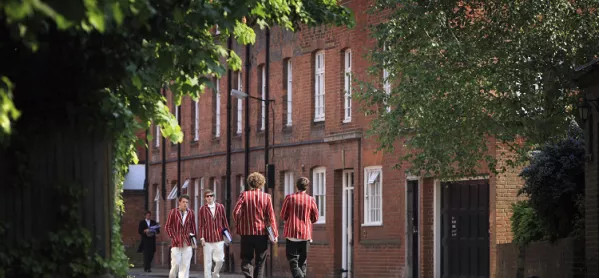Dozens of independent boarding schools have signed up to a bursary scheme offering discounted places to children in care.
Well-known schools such as Eton and Rugby are among those taking part in the project, which requires local authorities to pay for 60 per cent of the fees, with the remainder subsidised by the schools.
On average, this will mean local authorities pay annual fees of £21,000 per child, instead of £35,000.
The scheme, which 40 schools are taking part in, is being run by the Department for Education-backed organisation Boarding School Partnerships (BSP).
BSP chair Colin Morrison said he hopes it will lead to a trebling in the number of boarding pupils who are part-funded by local authorities, which currently stands at around 100. Many other disadvantaged pupils receive help from charities towards fees.
Local authorities have been accused in the past of failing to refer children to boarding schools for "ideological" reasons.
Mr Morrison, whose own boarding education was paid for by Essex County Council, acknowledged to Tes that supply of these bursaries currently outstripped demand.
'A major opportunity for vulnerable young people'
He said: "I would encourage all local authority children’s services departments to get to know boarding schools, meet the staff and discuss what they can do for vulnerable young people. This is a major opportunity for vulnerable young people to transform their lives after a very difficult start.”
The announcement comes after a similar scheme in Norfolk aimed at vulnerable children was found to "break the cycle of risk".
A spokesperson for the Local Government Association, which represents local authorities, said: "When it comes to housing vulnerable children, councils will always try to provide the most appropriate placement for an individual child's needs.
“For most children, this will be in a family home such as that provided by foster carers or extended family, where they can get the love and support that they need to flourish, but social workers will always consider a range of options, whether that's foster care, a children's home or another form of provision."
Schools minister Lord Agnew said: “We want a world-class education for every child, whatever their background, and know that boarding schools can be highly effective in improving both social and educational outcomes for vulnerable young people who could otherwise have quite chaotic lives.
"This commitment from so many of our best boarding schools to work with local authorities and subsidise boarding school placements will have a hugely positive impact on many vulnerable children.”




